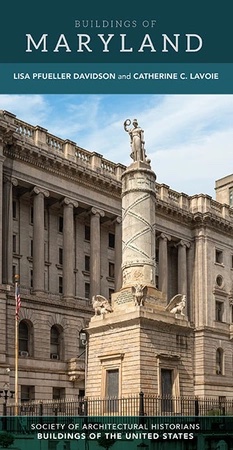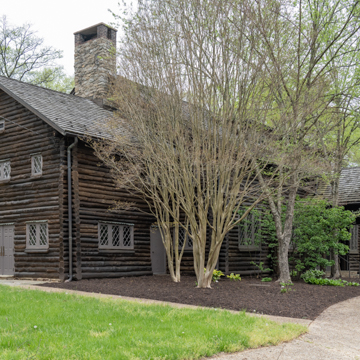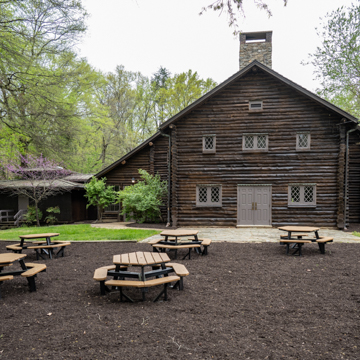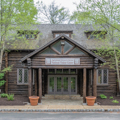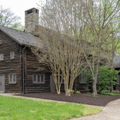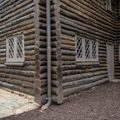In 1910 the Department of Agriculture began acquiring land in Prince George’s County to create a new research center, and the Beltsville site was designated the National Agricultural Research Center in 1935. Four Civilian Conservation Corps (CCC) camps assigned to the Beltsville site and other New Deal funding supported expansion, with the research center growing to over 12,000 acres. CCC enrollees worked on numerous projects, eventually constructing 21 buildings and 79 miles of roads, trails, and bridges and completing major fencing, sewerage, drainage, and landscaping projects.
For the lodge, CCC enrollees used pine and white oak logs harvested on-site to build a rustic structure in the form of an over-sized cabin with stone chimneys. The main interior space is one large room in the central block open to the roof trusses and featuring stone fireplaces at each end. The structure was used by the CCC for recreation until the onset of World War II. It served as a cafeteria from 1942 until 1985 and then as a visitor center and currently as a meeting space.

